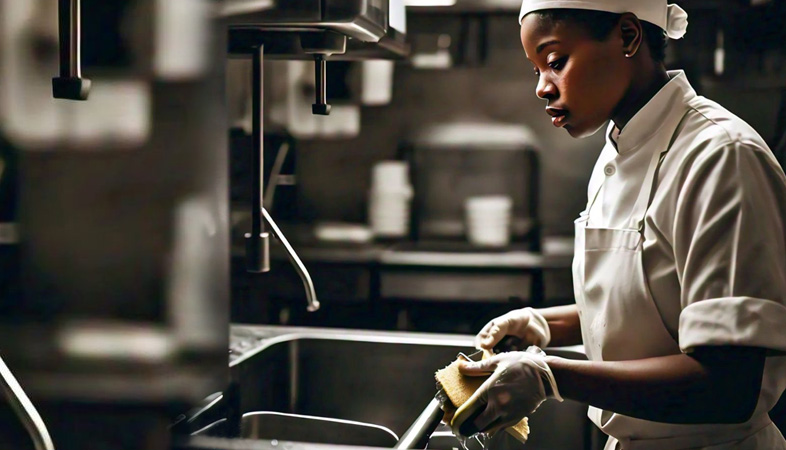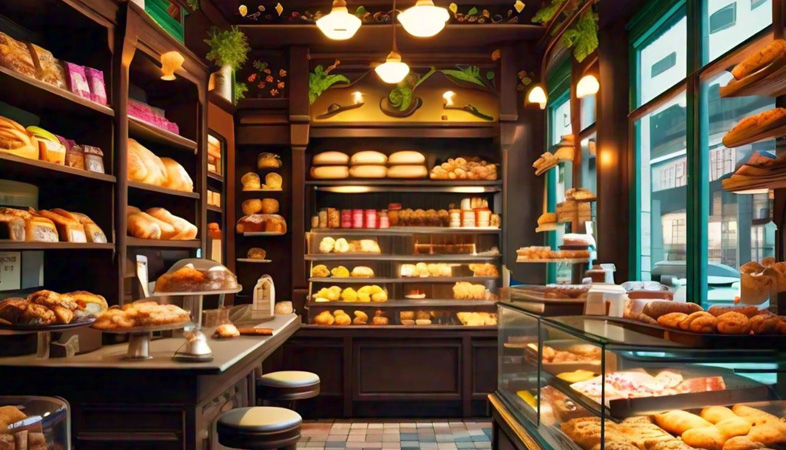Tech in Stewarding: How Digital Tools Are Revolutionizing Kitchen Operations
From smart inventory systems to automated cleaning solutions, technology is revolutionizing how kitchen operations are managed and streamlined.
The role of stewarding in kitchen operations has
traditionally been centered around maintaining cleanliness, managing inventory,
and supporting overall efficiency. However, the advent of digital tools and
technologies is transforming these conventional practices, bringing a wave of
innovation that enhances the effectiveness and efficiency of stewarding tasks.
From smart inventory systems to automated cleaning solutions, technology is
revolutionizing how kitchen operations are managed and streamlined.
One of the most impactful technological advancements in stewarding is the introduction of smart inventory management systems. Traditional inventory management often involved manual tracking and periodic audits, which could be time-consuming and prone to errors. Digital inventory solutions, however, offer real-time tracking and automated updates. These systems utilize barcodes, RFID tags, and cloud-based platforms to provide accurate and up-to-date information on stock levels, expiration dates, and order requirements. By automating inventory processes, kitchens can reduce waste, avoid stockouts, and optimize ordering, leading to cost savings and improved operational efficiency.
In addition to inventory management, digital tools are also enhancing the cleaning and sanitation processes within kitchen environments. Automated cleaning equipment, such as robotic floor scrubbers and dishwashers, are increasingly being adopted to handle routine tasks. These machines can perform cleaning tasks with greater consistency and efficiency compared to manual methods, ensuring that kitchen areas meet high standards of hygiene. Furthermore, digital sensors and monitoring systems are used to track cleanliness and maintenance needs, allowing for more proactive and preventive approaches to sanitation.
Technology is also playing a crucial role in improving communication and coordination within kitchen teams. Digital platforms and software applications facilitate seamless communication between kitchen staff, managers, and other departments. For instance, digital task management tools and collaborative platforms enable teams to assign and track tasks, share updates, and manage schedules more effectively. This enhanced communication helps to streamline workflows, reduce misunderstandings, and ensure that all team members are aligned with operational goals and standards.
Another significant technological advancement in stewarding is the use of data analytics to drive decision-making and performance improvements. By collecting and analyzing data from various sources, such as inventory systems, cleaning schedules, and staff performance metrics, kitchens can gain valuable insights into their operations. Data analytics can identify trends, predict future needs, and highlight areas for improvement. For example, analyzing inventory data can reveal patterns in product usage and help forecast demand more accurately, while performance metrics can be used to assess the efficiency of cleaning procedures and staff productivity.
Digital tools are also transforming the training and development of kitchen staff. Virtual reality (VR) and augmented reality (AR) technologies are being used to create immersive training experiences that simulate real-life scenarios. These technologies allow staff to practice and master cleaning procedures, equipment usage, and safety protocols in a controlled and interactive environment. By providing hands-on training opportunities, these tools enhance learning outcomes and ensure that staff are well-prepared to handle various stewarding tasks.
The integration of technology in stewarding also supports sustainability efforts within kitchen operations. Digital tools can help monitor and manage energy consumption, water usage, and waste production, contributing to more sustainable practices. For example, smart sensors can track energy use in real-time, allowing kitchens to identify and address inefficiencies. Similarly, waste management systems that use digital tracking can help kitchens reduce waste and implement recycling programs more effectively.
Technology is revolutionizing stewarding by introducing digital tools and solutions that enhance inventory management, cleaning processes, communication, and data analysis. These advancements are improving the efficiency, accuracy, and sustainability of kitchen operations, providing significant benefits for both staff and businesses. As the culinary industry continues to evolve, embracing these technological innovations will be essential for staying competitive and achieving operational excellence in stewarding.
.png)




























